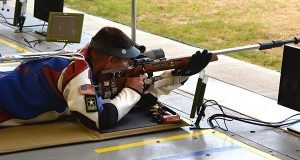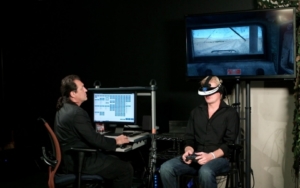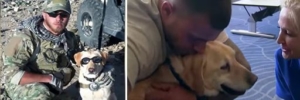Army Looks to Tackle Anger Amongst Combat Vets

By Debbie Gregory.
It is not uncommon for military veterans to join police forces and vice versa. Both jobs offer a strong sense of teamwork and reliance on others in life-or-death situations — in platoons and out on patrol.
That’s part of the reason why these attacks on police by former military men have touched a nerve among veterans who traditionally share a close bond with law enforcement.
In light of the shooting deaths of police in Baton Rouge and Dallas by former service members, the Army is trying to better understand why as many as 40 out of every100 troops return from war struggling with anger and aggression.
Whether there is a link between their military service and the shootings is unknown. And military researchers have been studying the issue of anger for almost a decade.
We all get angry sometimes; it’s part of being human. But if anger is expressed in ways that are harmful to ourselves or someone else, or persists for a long time, it can become a problem.
Reacting to a threat with immediate action, rather than freezing, is an important part of military training. The problem is, a lot of veterans have trouble turning off that survival instinct once they get home.
It is thought that anger and aggression may be linked to combat-zone ailments, including disrupted sleep patterns and recurring nightmares For some veterans, anger can be related to another mental health problem like depression, post traumatic stress disorder, alcohol and other drug use.
Amy Adler, an Army clinical research psychologist, said while military studies show the presence of anger and aggression in some troops returning from war, it remains uncertain whether those emotions reach the kind extreme behavior exhibited in the recent spate of shootings of police.
“I don’t think we know that,” Adler said.
Military Connection salutes and proudly serves veterans and service members in the Army, Navy, Air Force, Marines, Coast Guard, Guard and Reserve, and their families.


























